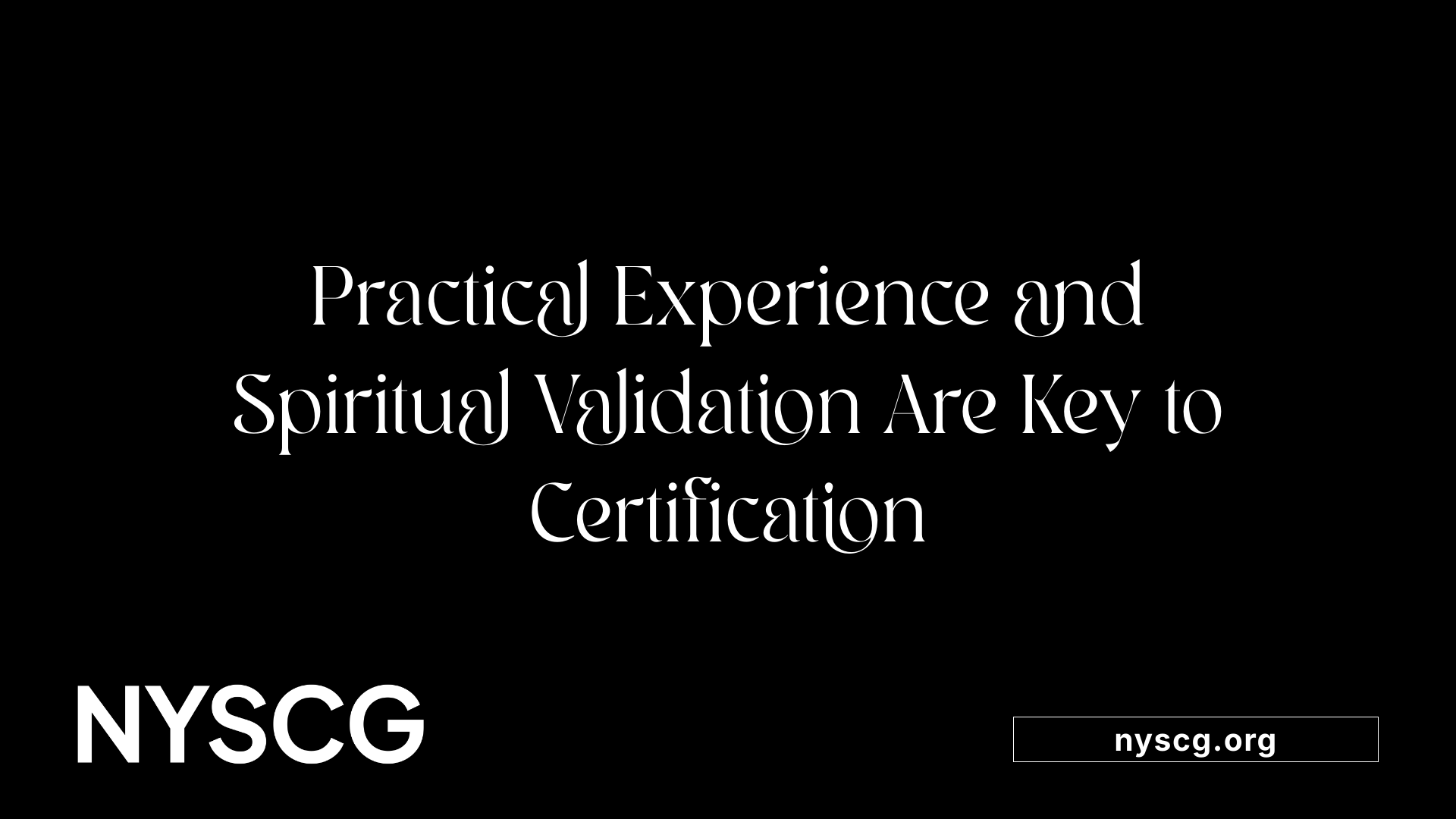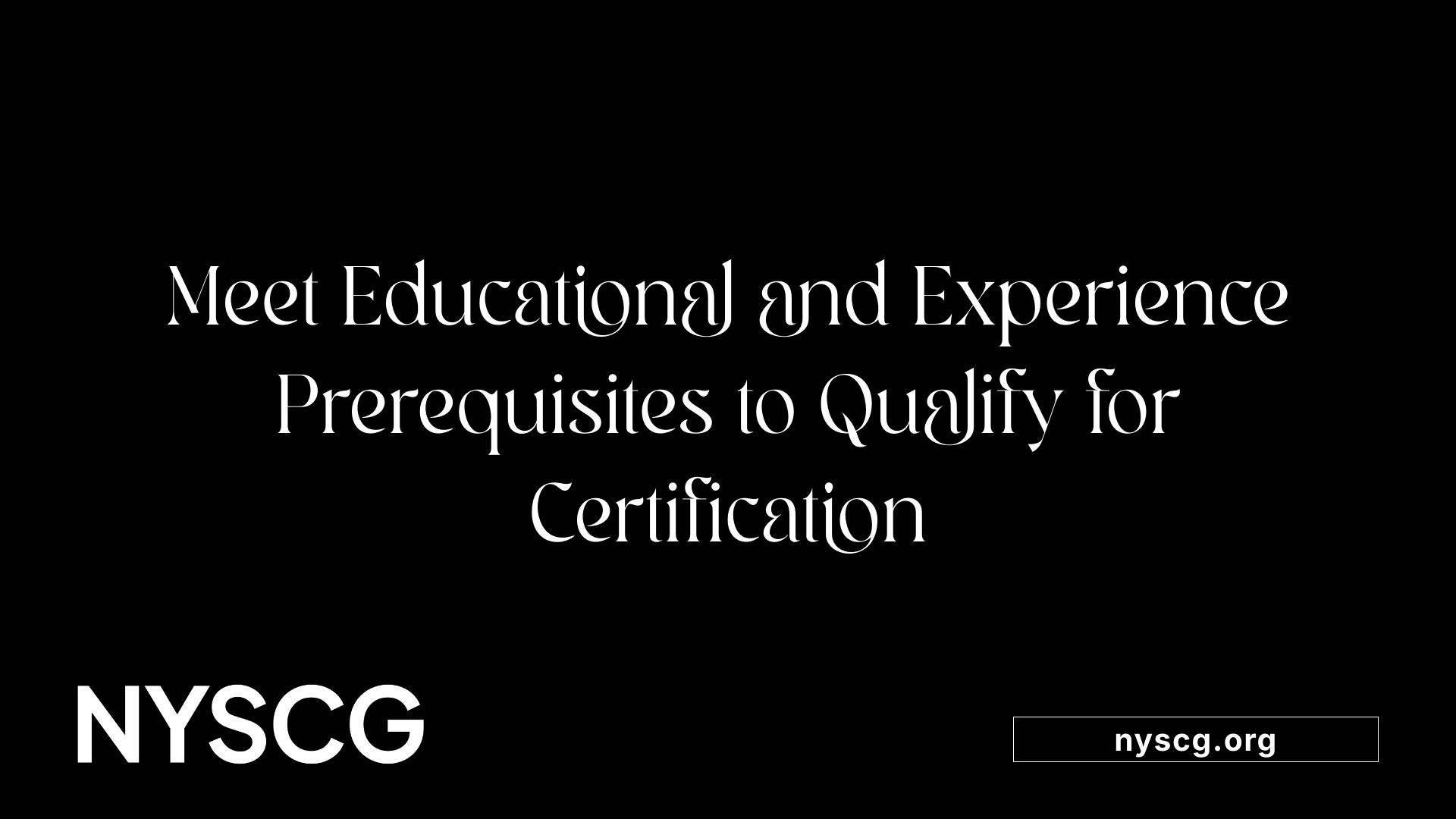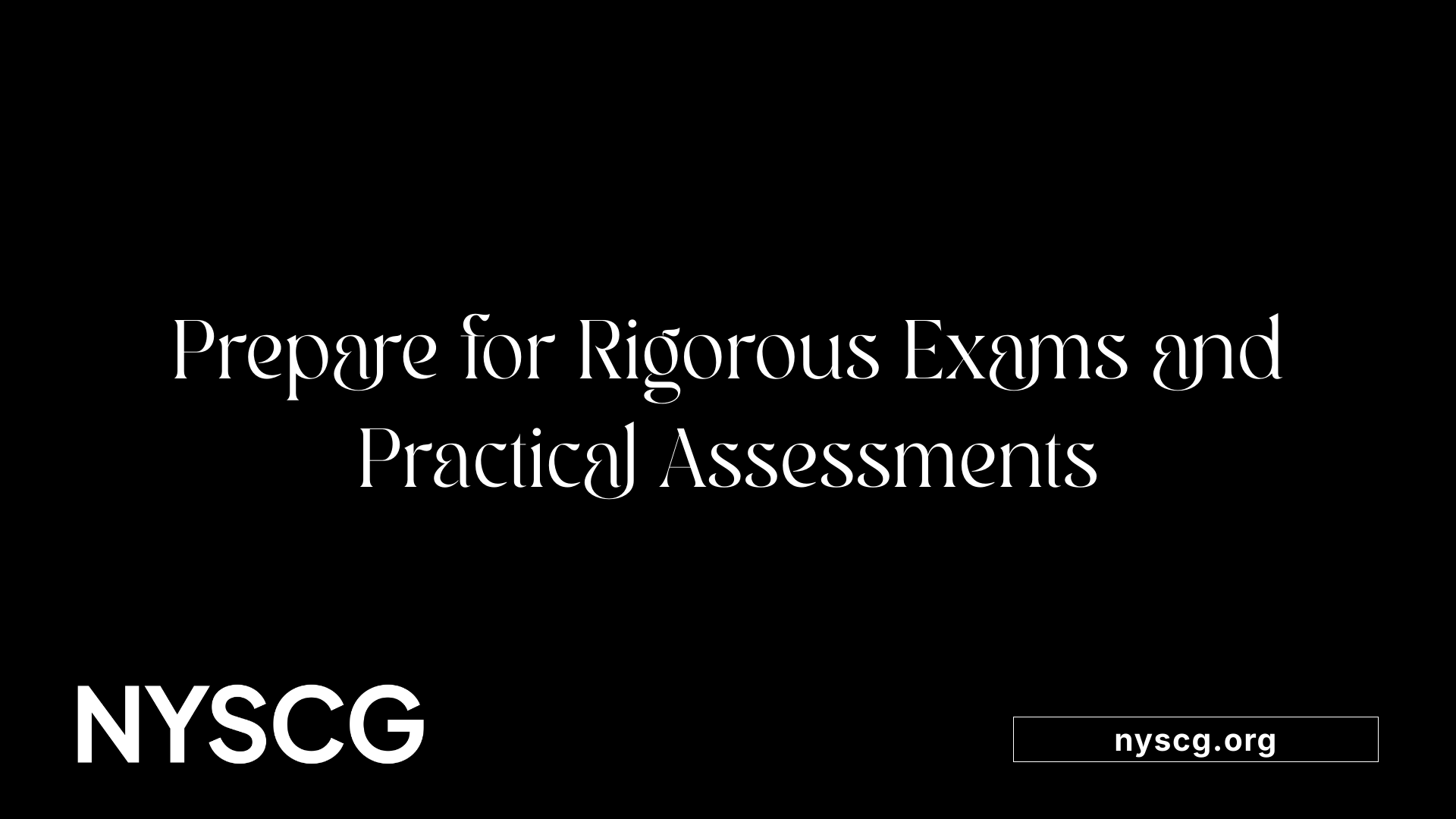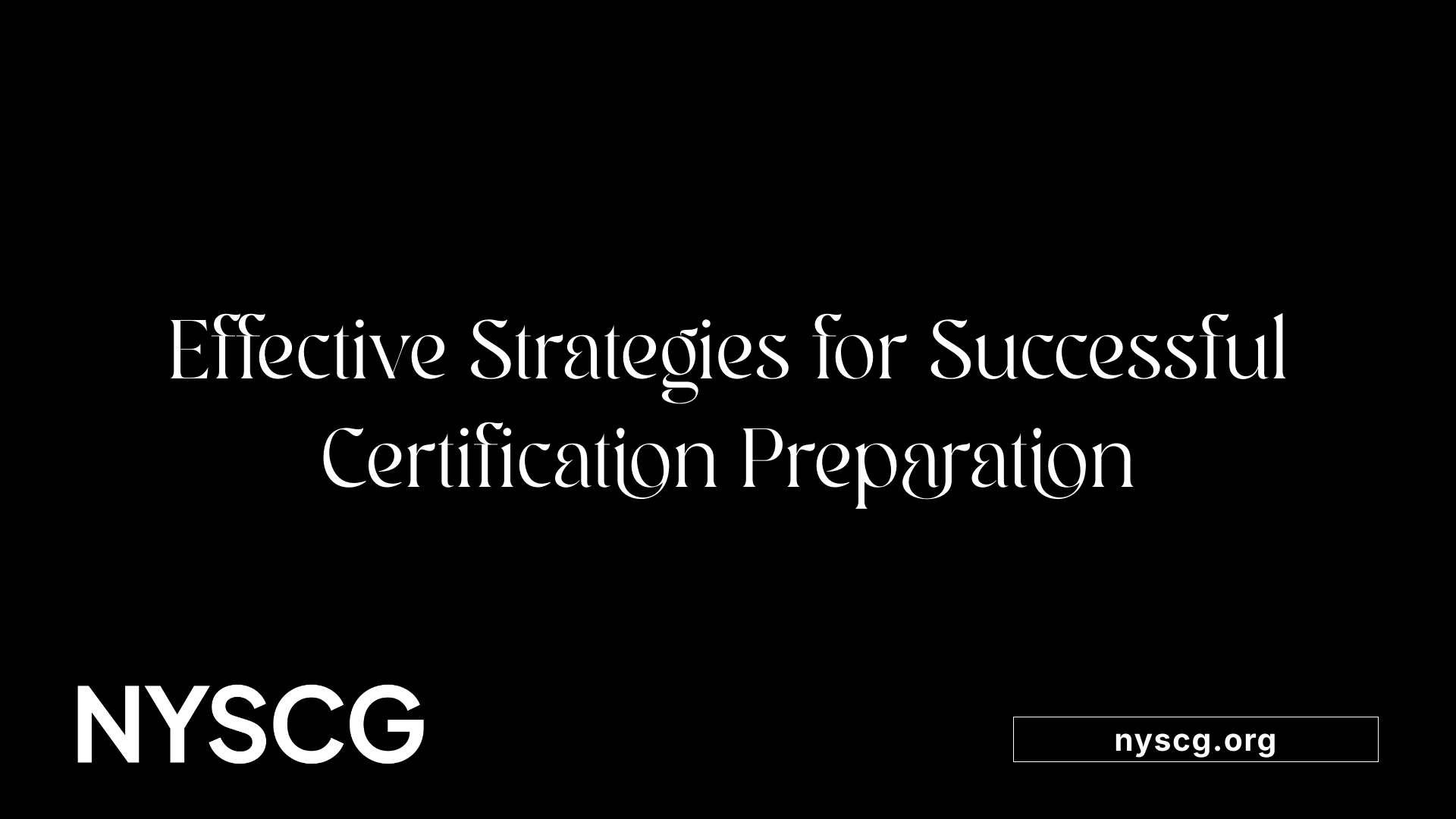What Type of Exam Is Required for Chaplain Credentials?


Becoming a credentialed chaplain involves a comprehensive process that ensures practitioners are equipped with the necessary knowledge, skills, and ethical standards to serve effectively. Central to this pathway are various exams and assessments designed to evaluate a candidate's competence. This article delves into the types of exams required, the preparation involved, and how these evaluations fit into the broader certification framework.

Education, clinical courses, and endorsements are essential pillars in the process of becoming a certified chaplain. They collectively ensure that candidates possess the necessary background, practical skills, and spiritual integrity to serve effectively.
Academic credentials stand as the backbone of their qualifications. Candidates are typically required to hold a bachelor's degree from a CHEA-accredited institution. For higher certification levels, such as Board Certified Chaplain (BCC), a minimum of 72 graduate semester hours—including coursework in chaplaincy, theology, philosophy, or psychology—is necessary. The Associate Certified Chaplain (ACC) level requires at least 48 semester hours. Graduate degrees like a Master of Divinity (MDiv) or similar are often mandated, provided they come from accredited institutions.
Clinical Pastoral Education (CPE) complements formal education by providing hands-on, supervised experience. Depending on the certification level, candidates must complete multiple units of CPE—typically four units for BCC and two for ACC—accredited by organizations like NACC or CASC. CPE training, often conducted in hospitals or medical settings, develops core skills such as active listening and crisis intervention, essential in pastoral care.
Endorsements from recognized faith or religious organizations endorse the candidate’s spiritual standing and accountability. For example, NACC certifies Roman Catholic chaplains with ecclesiastical endorsements approved by the U.S. Conference of Catholic Bishops. Such endorsements verify that the candidate’s faith commitment aligns with professional standards and are prerequisite for certification.
Together, education, clinical training, and endorsements serve to ensure that chaplains are competent, ethical, and prepared to serve diverse populations. They are assessed through written materials, interviews, and exams, culminating in a certification that signifies readiness for professional ministry in various settings.
| Aspect | Requirements | Certification Level | Additional Details |
|---|---|---|---|
| Educational Background | Bachelor’s Degree (accredited) | All levels | Includes fields like theology, philosophy, psychology |
| Graduate Courses | 48-72 semester hours | ACC, BCC | Specific coursework in chaplaincy and related areas |
| Clinical Pastoral Education | 2-4 units | ACC, BCC | Accredited by NACC, CASC, or approved by BCCI |
| Endorsement | Religious organization endorsement | All levels | From recognized faith groups, necessary for certification |
| Professional Assessment | Written materials, interviews, exams | All levels | Assesses competence, readiness, and faith integrity |
This comprehensive combination of academic, practical, and spiritual validation ensures that chaplains are well-equipped and trustworthy in their role, maintaining high standards across the profession.

Gaining chaplain certification involves several educational, experiential, and ethical prerequisites. Candidates must hold a bachelor’s degree from a CHEA-accredited institution, along with specific coursework in areas such as theology, sacred texts, ethics, psychology, or sociology. This educational foundation ensures that applicants are well-prepared for spiritual and pastoral responsibilities.
In addition to academic qualifications, candidates are required to complete a minimum of 400 hours of Clinical Pastoral Education (CPE) from accredited programs like NACC, CASC, or those approved by BCCI. This hands-on training provides practical competence in spiritual care.
Work experience is equally important. Applicants must demonstrate at least 1,000 hours of work as a chaplain, which is verified through employer documentation. An ecclesiastical endorsement from a recognized faith organization is essential and must be current, confirming the applicant’s standing within their faith community.
Certification also demands adherence to professional standards. Candidates must pass examinations such as the Standardized Patient Exam and the Standardized Clinical Knowledge Test, show competence through written materials and interviews, and agree to ongoing education efforts. Membership in professional organizations like the APC or BCCI is often required to sustain certification.
Finally, maintaining active ethical conduct, participating in continuing education, and upholding the integrity of the profession are necessary for certification renewal and career advancement.

The path to chaplain certification involves several assessments designed to ensure competence, professionalism, and readiness for spiritual care roles. Candidates are required to pass standardized clinical knowledge tests, which evaluate their understanding of evidence-based practices, ethical principles, and spiritual assessment models. These tests, often developed by organizations such as the Spiritual Care Association (SCA), are based on scope of practice documents and quality indicators.
For advanced titles like the Board Certified Chaplain (BCC), applicants must demonstrate proficiency through rigorous exams and assessments. These include not only written tests but also practical evaluations like simulated patient encounters and case study reviews. Oral interviews are an essential part of the process, allowing certification bodies to assess interpersonal skills and professional judgment.
Educational credentials, work experience, and adherence to ethical standards are closely reviewed alongside these assessments, ensuring a comprehensive evaluation of each candidate’s qualifications.
Yes, standardized testing is a core element of the certification process. The SCA requires candidates to pass the Standardized Clinical Knowledge Test, a comprehensive exam that measures their grasp of core competencies, research principles, and ethical practices in spiritual care.
This exam is crafted based on international and interdisciplinary panels and emphasizes the importance of evidence-based practices in chaplaincy. It ensures that candidates are familiar with research, scope of practice, and professional standards, reaffirming their capability to serve effectively.
Alongside these tests, candidates must fulfill educational and clinical experience requirements, including degrees from accredited institutions and completion of Clinical Pastoral Education (CPE) units. Overall, standardized assessments are vital for certifying that chaplains are qualified and equipped for their roles.
The process of becoming certified involves multiple layers of evaluation. Initially, candidates must prepare comprehensive applications that include documentation of their education, clinical experience, and CPE hours.
Once approved, candidates participate in written examinations, such as the standardized knowledge test, to assess their theoretical understanding of chaplaincy. Practical skills are evaluated through simulated patient encounters, where candidates demonstrate core chaplaincy competencies, including active listening and spiritual assessment.
Additionally, they undergo oral interviews—either virtual or face-to-face—where they are assessed on self-awareness, ethics, organizational skills, and interaction with simulated patients. These evaluations are reviewed by a certification committee or a peer review panel, culminating in recommendations for certification.
Throughout this process, candidates’ professional competence and ethical practice are rigorously evaluated to ensure that only qualified individuals attain certification. This multi-faceted approach guarantees that certified chaplains possess the necessary knowledge, skills, and judgment to provide high-quality spiritual care.

Candidates pursuing chaplain certification should start by ensuring they meet all educational prerequisites. This includes obtaining degrees from CHEA-accredited institutions—such as a Master of Divinity or similar graduate degrees in theology, philosophy, or psychology—and completing specific coursework in these fields. Additionally, completing Clinical Pastoral Education (CPE) units from accredited providers is essential; four units for Board Certified Chaplains (BCC) and two units for Associate Certified Chaplains (ACC) are typically required.
Gaining relevant work experience is also crucial—candidates need to accumulate at least 2,000 hours as a chaplain after CPE. This practical experience helps develop the skills and confidence needed for the exam.
To prepare academically, candidates should familiarize themselves with the core knowledge areas outlined by certifying organizations. These include chaplaincy skills, ethical standards, cultural competence, and quality improvement practices. Utilizing a variety of study materials such as sample questions, foundational texts, and evidence-based practice literature can enhance understanding.
Many find it beneficial to participate in online courses or workshops, like those offered by the Spiritual Care Association or similar bodies, which focus on competency areas and test content. Preparing comprehensive application portfolios, documenting clinical experiences, case studies, and endorsements, also plays a vital role.
Finally, mastering the format of the assessment—whether written exams, oral interviews, or simulated clinical encounters—is key. Practice through mock exams and role-playing scenarios can help candidates feel more comfortable during the actual test.
Successful preparation involves a structured and multi-faceted approach. First, review core content areas regularly—chaplaincy skills, ethics, cultural awareness, and evidence-based practices—using study guides, practice tests, and relevant scholarly articles.
Engaging in mock interviews and simulated patient encounters allows candidates to develop confidence and improve their communication skills. These sessions help in understanding the nuances of professional presentation and clinical reasoning.
Enrolling in specialized training programs or workshops tailored to certification standards enhances knowledge and offers insights into exam expectations. Candidates should also keep a detailed portfolio of their clinical work, including case studies, letters of endorsement, and documentation of hours, which underscores their experience and commitment.
Peer study groups or mentorship arrangements provide additional support, fostering discussion, clarification of complex topics, and motivation.
Ultimately, consistent, disciplined study plans that incorporate these strategies significantly increase the likelihood of passing the certification process on the first attempt, setting a strong foundation for a competent and confident chaplaincy career.
Various organizations that certify chaplains offer distinct pathways to credentialing, each with specific requirements and assessment methods. These differences are designed to accommodate the diverse roles, educational levels, and specializations within chaplaincy.
The Board Certification in Clinical Chaplaincy (BCCI) provides two main certifications: the Board Certified Chaplain (BCC) and the Associate Certified Chaplain (ACC). The BCC is the most advanced credential, requiring a graduate degree, 72 semester hours of coursework including chaplaincy-specific classes, four units of Clinical Pastoral Education (CPE) accredited by organizations like NACC or CASC, and at least 2,000 hours of work experience post-CPE. Candidates demonstrate competence through written materials, interviews, and passing standardized exams such as the Standardized Patient Encounter and Knowledge Tests.
In contrast, the ACC requires fewer educational credits—at least 48 graduate semester hours—with two units of CPE and similar experience requirements. Both pathways involve assessments that evaluate professional skills, ethical practice, and core chaplaincy competencies.
The Spiritual Care Associations (SCA) also offer certifications, including the BCC and advanced designations such as Advanced Practice BCC (APBCC) and specialty certifications like APBCC-HPC tailored to hospice and palliative care. These certifications often involve evidence-based tests, simulated patient scenarios, and expertise evaluations. Candidates must pass written exams, participate in interviews, and submit case studies demonstrating their chaplaincy skills.
Specialized certifications, such as those for Veterans Affairs or hospice care, include additional coursework and assessments pertinent to their focus areas. For example, they might require demonstrating proficiency in specific clinical skills or institutional knowledge.
Candidate evaluations generally involve a combination of written examinations, practical assessments (like role-playing or simulated patient interactions), and peer reviews. Moreover, some certifiers, such as the NACC for Catholic chaplains, require ecclesiastical endorsements and adherence to religious standards.
Here is a comparison of some certification pathways:
| Organization | Credential Types | Educational Requirements | Practical Training | Assessment Components | Continuing Education |
|---|---|---|---|---|---|
| BCCI | BCC, ACC | Bachelor's + Master’s (48-72 credits) | 2-4 CPE units | Written exams, interviews, peer review | Every 5 years |
| SCA | BCC, APBCC, Specialty | Graduate degree + coursework | Varies, often 2-4 CPE units | Written tests, case studies, simulations | Ongoing CEUs |
| NACC | Catholic Chaplain Certifications | Theological degree + clinical training | 12-week CPE program | Written exams, canonical and theological proficiency | Periodic renewal |
Overall, each certification pathway is tailored to different levels of ministry involvement, educational backgrounds, and specialization interests. Candidates select pathways that best align with their professional roles, whether serving in hospitals, military, or religious settings, and must demonstrate their competence through tailored assessments and ongoing education.
The pathway to chaplain certification is characterized by a thorough evaluation process designed to uphold high standards of professional competence. From comprehensive educational requirements to standardized exams, practical assessments, and peer reviews, each step ensures that candidates are fully prepared to serve effectively. Understanding the various types of exams and assessments involved helps aspiring chaplains to prepare strategically, meet the certification standards, and advance confidently in their ministry. Ultimately, these rigorous evaluation processes safeguard the integrity of chaplaincy as a vital component of spiritual and emotional care in diverse settings.
All you need is the will to make the world a better place.
New York State chaplain group inc. is a tax deductible organization with a federal tax Id number 92-383-4921